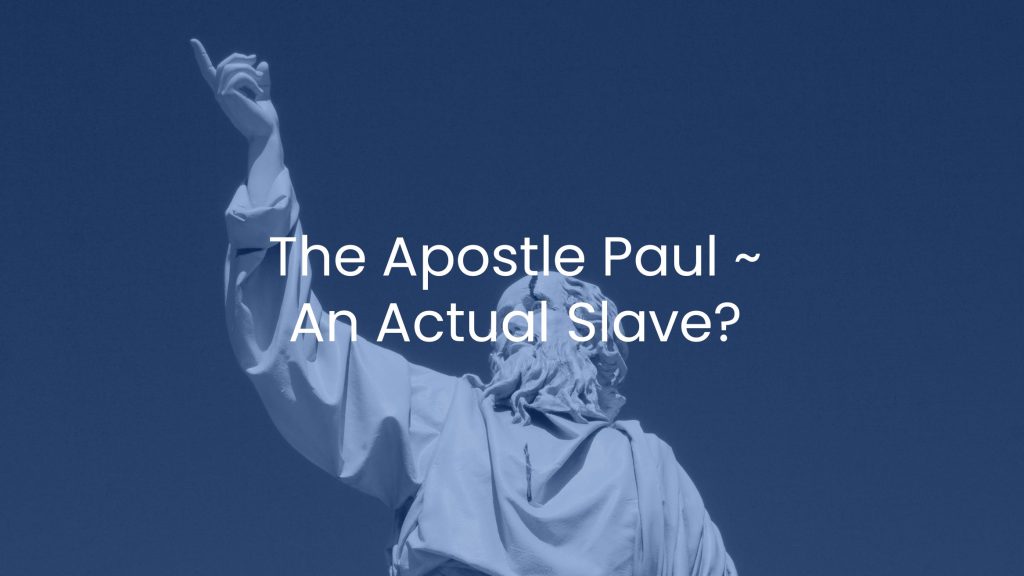|
Getting your Trinity Audio player ready...
|
This letter is from Paul, a slave of God and an apostle of Jesus Christ (Titus 1:1, NLT).
The Apostle Paul uses the word “slave” (also translated as “bondservant”) over 30 times in his writings in the New Testament.
Paul calls himself a slave, his co-workers slaves, and all who follow Jesus slaves.
This letter is from Paul and Timothy, slaves of Christ Jesus (Philippians 1:1).
You are free from your slavery to sin, and you have become slaves to righteous living (Romans 6:18).
Hearing Paul use the word “slave,” we believe that he uses this word as an illustration of our need to be sold out for Jesus. But how would the Apostle Paul’s teaching about “slaves” grow in depth if he was literally a slave at one time in his life?
Pastor Grant, has your great learning caused you to go mad?
Admittedly, Paul was accused of this by Festus in Acts 26:24. But perhaps I’m not crazy, as historical evidence exists that Apostle Paul’s parents were slaves. And there are leading scholars who say the same thing.
Let me make a few points before you call the theology police:
- Early church scholars mention several times that Paul’s parents came from a small village in northern Israel.
- The village was named Gischala. It was a hotbed of Jewish zealotry and was obliterated by the Romans about 4 B.C., with all its citizens taken into slavery. In this diaspora, Paul’s parents were taken to Tarsus (Paul’s hometown, Acts 22:3).
- Slaves were often freed after a period of service and given Roman citizenship by their Roman owners. Most Jews living in Roman colonial cities didn’t get citizenship. But this explains how Paul—born of Jewish/Roman parents—received his citizenship.
- After causing a riot in the temple area of Jerusalem, Paul spoke educated Greek to a Roman commander, and then he addressed the mob in Aramaic (Acts 21:37-40). Jews from the diaspora didn’t speak Aramaic, and hardly any Jews spoke “high-class” Greek. The scenario of Paul from northern Israel checks the Aramaic box, and being raised with a scholastic education in Tarsus checks the Greek box.
- Paul, originally called Saul, was educated by the greatest teacher of the law of that era (Gamaliel, Acts 22:3). This opportunity wouldn’t have been afforded a former slave, but with Paul having enslaved and persecuted Zealot parents—the keys to his bona-fide Jewish education were given to him.
Okay, let’s pause for a moment and contemplate why all this matters.
After the bright light conversion of Saul/Paul on the road to Damascus, Jesus spoke to the saintly Ananias, telling him to visit Saul/Paul. And Jesus told Ananias, “Go, for Saul is my chosen instrument to take my message to the Gentiles and to kings, and to the people of Israel” (Acts 9:15).
Now, back to our contemplation.
How could a simple Jew converse with Roman rulers, debate both Jews on the street and officials in the temple, travel under the protection of being a Roman citizen, and have doors opened for him to speak in synagogues throughout the Roman Empire?
Paul was God’s chosen instrument—slave, Roman citizen, Greek-speaking, Aramaic-speaking, Gamaliel-educated—as an apostle to both Jew and Gentile.
Wow! Let’s remember that Jesus has plans for us, too.

